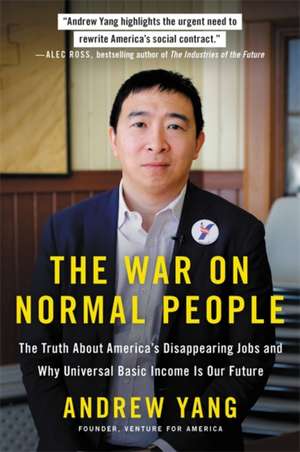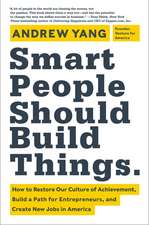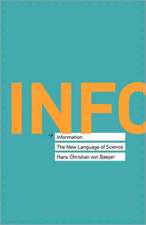The War on Normal People: The Truth About America's Disappearing Jobs and Why Universal Basic Income Is Our Future
Autor Andrew Yangen Limba Engleză Paperback – apr 2019
Preț: 66.60 lei
Preț vechi: 87.55 lei
-24% Nou
12.75€ • 13.14$ • 10.76£
Carte disponibilă
Livrare economică 10-24 februarie
Livrare express 24-30 ianuarie pentru 41.19 lei
Specificații
ISBN-10: 0316414212
Pagini: 304
Dimensiuni: 136 x 208 x 22 mm
Greutate: 0.25 kg
Editura: Hachette Book Group
Colecția Hachette Books
Descriere
From 2020 Democratic presidential candidate Andrew Yang, a captivating account of how "a skinny Asian kid from upstate" became a successful entrepreneur, only to find a new mission: calling attention to the urgent steps America must take, including Universal Basic Income, to stabilize our economy amid rapid technological change and automation.
The shift toward automation is about to create a tsunami of unemployment. Not in the distant future--now. One recent estimate predicts 45 million American workers will lose their jobs within the next twelve years--jobs that won't be replaced. In a future marked by restlessness and chronic unemployment, what will happen to American society?
In The War on Normal People, Andrew Yang paints a dire portrait of the American economy. Rapidly advancing technologies like artificial intelligence, robotics and automation software are making millions of Americans' livelihoods irrelevant. The consequences of these trends are already being felt across our communities in the form of political unrest, drug use, and other social ills. The future looks dire-but is it unavoidable?
In The War on Normal People, Yang imagines a different future--one in which having a job is distinct from the capacity to prosper and seek fulfillment. At this vision's core is Universal Basic Income, the concept of providing all citizens with a guaranteed income-and one that is rapidly gaining popularity among forward-thinking politicians and economists. Yang proposes that UBI is an essential step toward a new, more durable kind of economy, one he calls "human capitalism."


